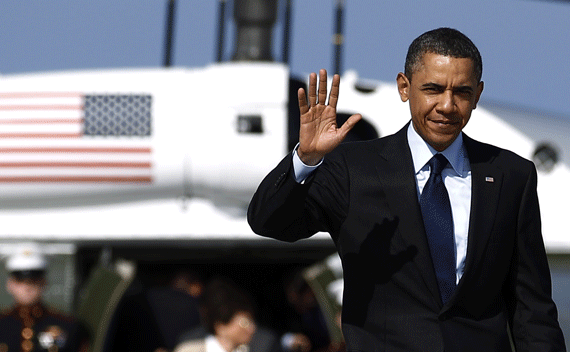The New Yorker’s Ryan Lizza on Obama’s Foreign Policy
More on:

Ryan Lizza of the New Yorker has written his take on President Obama’s foreign policy. “The Consequentialist” is likely to attract a lot of attention. Indeed, my colleague Elliott Abrams already has a post up on the article.
Lizza’s article is interesting for its anecdotes alone: the gap between what Candidate Obama promised and President Obama has delivered; Richard Holbrooke’s failure to gain Obama’s ear on Afghanistan; the suggestions by some Obama advisers past and present that a gender split explains the administration’s divisions on Libyan policy; and Secretary Hillary Clinton’s dismay upon discovering that young Egyptian democracy activists are not developing anything that might resemble a political agenda.
But the big question the article tries to answer is what overarching ideology or strategy is guiding Obama’s foreign policy choices. Lizza’s answer is that there is no ideology at work other than the ideology of taking everything case-by-case:
Obama’s aides often insist that he is an anti-ideological politician interested only in what actually works. He is, one says, a “consequentialist.”
Lizza later adds:
Obama officials often expressed impatience with questions about theory or about the elusive quest for an Obama doctrine. One senior Administration official reminded me what the former British Prime Minister Harold Macmillan said when asked what was likely to set the course of his government: “Events, dear boy, events.”Obama has emphasized bureaucratic efficiency over ideology, and approached foreign policy as if it were case law, deciding his response to every threat or crisis on its own merits. “When you start applying blanket policies on the complexities and merits of the current world situation, you’re going to get yourself in trouble,” he said in a recent interview with NBC News.
It’s easy to understand why Obama might be skeptical of what critics deride as “stratocrap” and “global baloney.” Any ideology rigidly applied certainly can get you into a whole lot of trouble. The George W. Bush administration is Exhibit A.
But taking every event on its own merits can be just as dangerous. An old saying makes the point succinctly: “If you don’t know where you are headed, any road will take you there.” However well-intentioned Obama’s ad hoc approach might be, it has, as Lizza shows, sown confusion among friends and foes alike. What exactly are we hoping to accomplish overseas? What are our priorities and what are we willing to sacrifice to achieve them? How do we avoid letting events turn American foreign policy into, to borrow George W. Bush’s words, a “cork in a current”? Much like the case with domestic issues, Obama lacks a clear foreign policy narrative that answers these fundamental questions and gives his decisions coherence.
None of this is to say that Obama needs the sort of grand strategy that makes academics swoon. It is to say that presidents who shun guiding principles and priorities in favor of taking things as they come can find it difficult to lead–-and make it harder for others to follow.
More on:
 Online Store
Online Store
